For Nancy Johnson, there wasn't a certain event that led to her being afraid of clowns. It's just a fear that's been with her since she can remember.
"I don't remember it very strongly in my childhood, but I remember in my teen years just realizing that they terrified me," Johnson says.
She says she may have been affected by Stephen King's It, as many other children of the '80s were, but she hadn't even seen the movie, only previews. Then, as a young adult, a friend received a clown doll for her unborn child during a baby shower and Johnson realized not everyone felt the way she did.
"I just remember being so uncomfortable around the doll," she says. "So much moreso than everyone else."
Johnson has since earned a PhD in clinical psychology and is currently the chair of the Psychology Department at Queens University of Charlotte. During that time, she's had plenty of time to look into what it is about clowns that strikes fear in many people.
"I actually looked into a few things because I've heard people talking about it more and more in the years I've been teaching," Johnson says. "There are a few random theories, nobody really knows exactly why."
The obvious answer would be that movies like It or stories about John Wayne Gacy, the serial killer who worked as a clown by day while killing young men and boys by night during the '70s, have created this fear, but it's hard to tell if these cultural anecdotes were a cause or an effect; inspiring a fear of clowns or inspired by it. The real answer into why clowns scare so many people may go deeper into human instinct.
A prominent theory involves the fact that facial recognition is one of the first things we learn as human babies. Recognizing and differentiating faces is one of the first and most important things a newborn does. Knowing what a human face is supposed to look like is a comfort we've carried with us our entire lives, and clowns — with their face paint and masks — mess with that whole dynamic. When a face does not look "correct," it can cause some inherent discomfort among us.
The discomfort that results from toeing the line between a human face and a non-human face has been recognized in certain fields of science, such as robotics. The "uncanny valley effect" states that when non-human things look or move almost — but not exactly — like human things, it can create revulsion among human observers.
"There's this gap when something is close to human but not quite exactly right, people get really uncomfortable. I've seen a few theorists that believe that may be why people are afraid of clowns," Johnson says. "Clowns can be human but not quite human, and that may put people on edge."
While this may account for why everyday people get a little freaked out by clowns, there are others who suffer on another level. Simply being scared of clowns is not a diagnosable condition, but those whose fear is long-lasting, extremely distressful and causes impairment in their ability to function at a normal level could be suffering from coulrophobia, the clinical term for a fear of clowns.
Coulrophobia is not listed specifically in the Diagnostic and Statistic Manual of Mental Disorders, but would most probably fall under a "specific phobia" diagnosis. A specific phobia is a marked fear or anxiety about a specific object or situation. Common specific phobias include arachnophobia or claustrophobia.
There are multiple criteria for diagnosing a specific phobia, including that the fear or anxiety is out of proportion with any actual danger, that it is persistent (lasting 6 months or more) and that it causes clinically significant distress or impairment in social, occupational or other important areas of functioning.
Johnson says she doesn't believe that she herself is coulrophobic, although she "couldn't imagine" sitting through the circus when it comes to Charlotte this week. She does, however, know of a friend working as a counselor who recently treated someone for coulrophobia. The patient got a job at a children's hospital, where clowns often visit to cheer up the suffering children, but these visits just created more suffering for the new employee.
"She was absolutely terrified and couldn't do her job," Johnson says.
In situations like these, Johnson says the treatment involves getting the patient into a state of relaxation then slowly exposing them to the "fear stimulus," whether through pictures or having them imagine it.
"If I had to go join the circus, I would probably have to be taught relaxation and then slowly be exposed to a clown until I could get over it," Johnson says. "But I think I'll stick with teaching college."
As for all the theories she's studied, Johnson's personal feelings show a bit when it comes to which one she truly believes is at the root of people's fear of clowns.
"I joke with my friends that we may just not like them because they're evil," she says, laughing. "They just disturb you."
Speaking of...
-

Martin "The Clown" Barry forgets the circus tricks
Jan 27, 2016 -
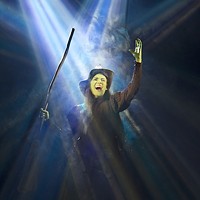
Today's Top 5: Friday
Mar 29, 2013 -
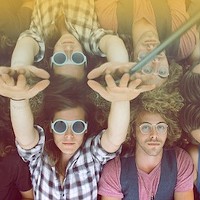
Today's Top 5: Tuesday
Mar 26, 2013 - More »
Latest in Commentary
More by Ryan Pitkin
-
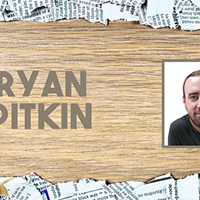
You're the Best... of Charlotte
Oct 27, 2018 -
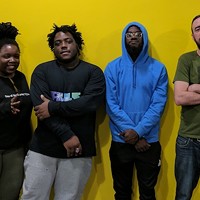
Listen Up: Cuzo Key and FLLS Go 'Universal' on 'Local Vibes'
Oct 25, 2018 -
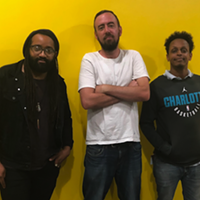
Listen Up: KANG is Back and Bla/Alt on 'Local Vibes'
Oct 18, 2018 - More »
Calendar
-

Wine & Paint @ Blackfinn Ameripub- Ballantyne
-

Queen Charlotte Fair @ Route 29 Pavilion
-

NEW WINDOW GALLERY-Pat Rhea-ACRYLIC PAINTINGS-April 05-30 2024 VALDESE, NC 28690 @ New Window Gallery/Play It Again Records
- Through April 30, 12 p.m.
-

TheDiscountCodes
-

Face to Face Foundation Gala @ The Revelry North End
-
Esports in Charlotte Takes Off: A Guide to Virtual Competitions and Betting
-
Homer's night on the town 41
If you drank a shot with the Knights mascot on Sept. 20, you were basically harboring a fugitive
-
Beauty Industry Trends To Look Out For In Charlotte In 2022









